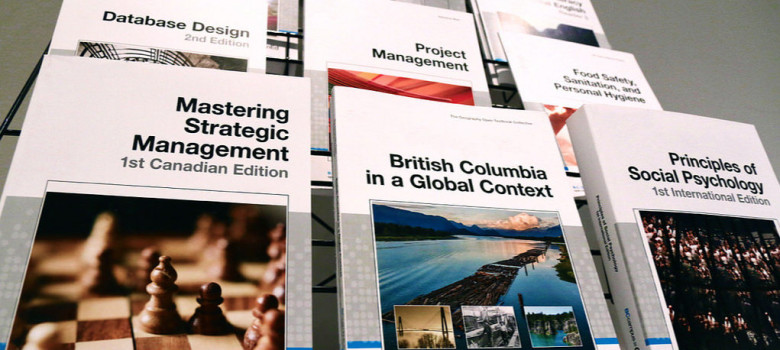As students across Canada head back to school this week, the Canadian Association of Research Libraries (CARL), which represents 31 member libraries, issued a reminder that Canadian education spends hundreds of millions of dollars every year on content licensing. Access Copyright and the publishing community have tried to paint the Canadian situation as a free-for-all, but the reality is that educational institutions, libraries, and students are still buying books and licensing content. In fact, recent U.S. data shows that textbook costs are increasing far faster than any other education cost.
The CARL release states:
The 31 member libraries of the Canadian Association of Research Libraries (CARL) spent $293 million on information resources in 2014-15, demonstrating a clear commitment to accessing print and digital content legally and rewarding content owners accordingly. Universities are actively engaged in outreach to their faculty, staff, and students, educating them on their rights and responsibilities under the Copyright Act and ensuring that uses of material under copyright fall well within the provisions of the law. Where educational uses are more substantive and therefore fall outside of fair dealing, the content is either purchased to be added to licensed collections, or rights clearances are obtained and royalties are paid for these uses. Trained, knowledgeable library staff support these activities.
Some voices in the publishing community and associated lobbyists have stated in the media that the education market has evaporated as a result of users’ fair dealing rights. This is inaccurate. Universities continue to buy and to license access to published works, at substantial cost, using public funds and student tuition dollars.
The hundreds of millions of dollars being spent on licensing highlights again why the Canadian publishing industry claims about fair dealing are simply false. Indeed, the best study on the issue, Reading the Tea Leaves, which was prepared for Creative BC and the Association of Book Publishers of British Columbia, characterizes the challenge for educational publishing as follows:
Scholarly and educational publishers share some of the same issues as trade publishers, but they face other unique challenges. Tablet and other nonprint use will increase in the school systems here and abroad, changing how educational materials are bought, used and updated. Scholarly publishers and trade publishers that sell into the academic market are struggling with the impact on their sales of Open Access and fair use policies, tailored subscription services such as Scribd’s Edelweiss, used book sales, student piracy and increased library use for class reading lists.
As CARL rightly concludes, “we believe that fair dealing in the Copyright Act is serving its intended purpose: enabling fair portions from works of creativity or scholarship to be drawn upon in learning environments, thereby stimulating innovation and the creation of new research and new knowledge.”








HERE HERE
Pick the very best Makeup Artist for your Wedding
A girl imagines becoming a bride-to-be all through her life. And, when this
day lastly shows up, she leaves no stone unturned to accomplish her
preferred appearance. When it concerns makeup, even a small error can
destroy your wedding look. A skilled and imaginative wedding makeup artist
Mississauga will make you look attractive along with natural at the same
time.
Address: 597 Southridge Dr Hamilton, ON L9C 7W4 Canada
+1 905-979-4220